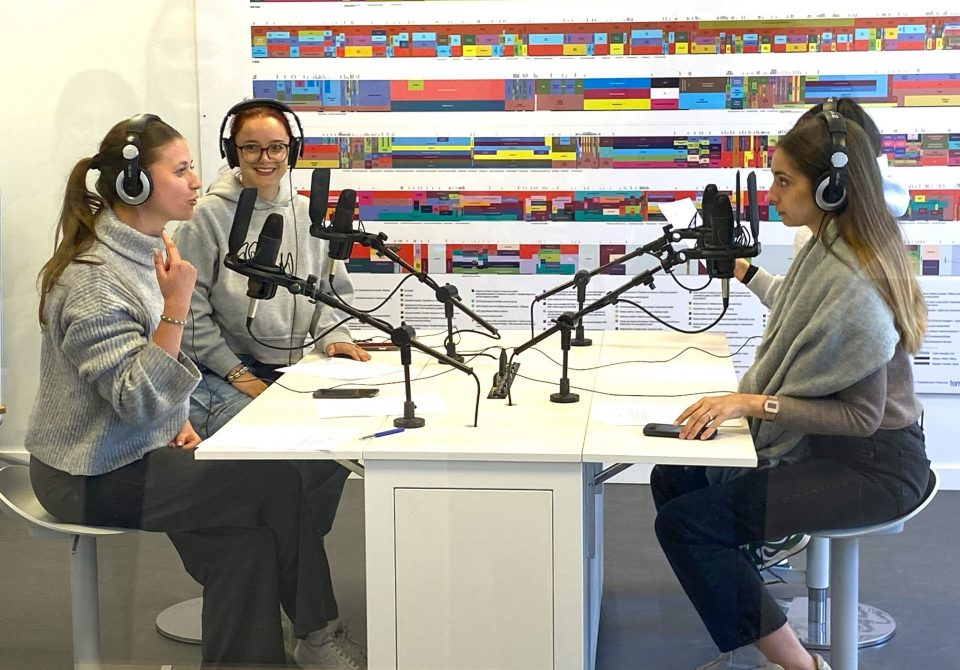Master of Education, Section 3: French
Human & Social Sciences
In brief
Do you love the French language and want others, whether French-speaking or not, to enjoy it too? Then this is the course for you !
The strengths of the AESI Bachelor in French - French as a foreign language
- A permanent link between scientific knowledge and the knowledge and skills to be developed in French classes
- In-depth, personalised support for work placements in a vast network of partner schools
- Stimulating projects, open to the outside world: organisation of theme days, invitations to writers and artists, cultural and artistic visits, etc.
- Exchanges between all the Haute Ecole's teaching departments. Students share some of their activities.
About the job
French teachers work in the first years of secondary education and in the last years of primary education, in social promotion or in private education (language schools, tutoring, courses for adults, in companies, etc.).
The skills developed as part of the course also enable students to work in other fields where a command of oral or written expression is required: teaching departments in museums or cultural institutions, libraries, publishing houses, literacy, voluntary organisations, etc.
The Programme of Study
Programme4 years - 240 credits
In addition to courses linked to the teaching of French and the chosen pairing, solid psycho-pedagogical knowledge helps to train genuine teaching professionals. A dissertation, produced in partnership between HE Vinci and UCLouvain, invites students to analyse in depth an issue - linked to their training - that particularly appeals to them.
Pairings
In addition to French, the course is completed by an associated subject:
- Education in philosophy and citizenship: this subject aims to provide the didactic tools and knowledge needed to understand the issues, concepts and aims of the EPC reference framework. Training in (the practice of) philosophy helps to strengthen critical thinking about concepts linked to citizenship. It also aims to increase knowledge of the social sciences and humanities in order to gain a better understanding of the issues facing citizens today.
- Cultural and artistic education: the aim of this subject is to provide the tools for teaching culture and French and physical expression, musical expression and visual expression to pupils at the end of primary school and the beginning of secondary school. The aim of cultural education is to encourage pupils to develop critical and civic-minded thinking about the heritage that culture shares, and to contribute to an awareness of and respect for differences.
- French as a foreign language (FLE) - French as a learning language (FLA): the aim of this subject is to provide specific tools for teaching everyday French to people for whom it is not their first language: teaching in reception and education systems for new arrivals, for people from immigrant backgrounds, literacy, teaching abroad, etc. It also aims to improve the knowledge and mastery of the language of the school and school culture of pupils with special needs in these areas (not just allophone pupils). It also aims to improve the knowledge and mastery of the school language and culture of pupils with special needs in these areas (not just allophone pupils).
- Ancient languages: the aim of this subject is to acquire knowledge of the main sources that make up our common heritage through the study of ancient languages and the civilisations of classical antiquity, with a view to establishing cultural and linguistic roots. The teaching of Latin will help pupils to better master the codes of the French language, while providing them with a solid grounding in cultural and social values. The reform of the core curriculum makes the study of Latin and the civilisations of classical antiquity compulsory in secondary 2 and 3.
- Religion: this subject aims to provide the theological knowledge needed to help pupils (de)construct their representations of Christian culture and faith. It also aims to provide the keys needed to enter into interreligious and philosophical dialogue in today's society. It also provides students with the tools they need to give meaning to their religion lessons and encourage them to question their own spirituality.